Eating spoiled, contaminated, or toxic food can cause food poisoning. You may experience several symptoms if you have food poisoning; however, the symptoms are similar to these of a stomach flu. That is why many people ask how to tell whether you have food poisoning or not.
How to Tell If You Have Food Poisoning
In order to recognize food poisoning, you should know the symptoms of it. Some of the most common symptoms of food poisoning are vomiting, nausea, fever, watery diarrhea, and severe abdominal pain. However, you may experience different symptoms depending on what kind of food poisoning you have. The duration and incubation time may also vary greatly. Here is more about the symptoms, causes, and incubation time of food poisoning caused by different types of bacteria and viruses.
1. Bacillus Cereus
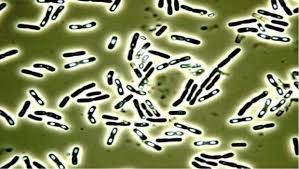
This spore-producing bacterium produces two types of toxins: one causes vomiting, while the other one causes diarrhea. The toxins can contaminate cooked foods when they are not stored properly. Vegetables, milk, meat, fish, and starchy foods are more likely to become contaminated with Bacillus cereus.
The incubation period is from half an hour to 5 hours for the vomiting toxin, whereas it is between 8 and 16 hours for the diarrheal toxin. Symptoms are not serious and generally resolve in 24 hours.
2. Campylobacter
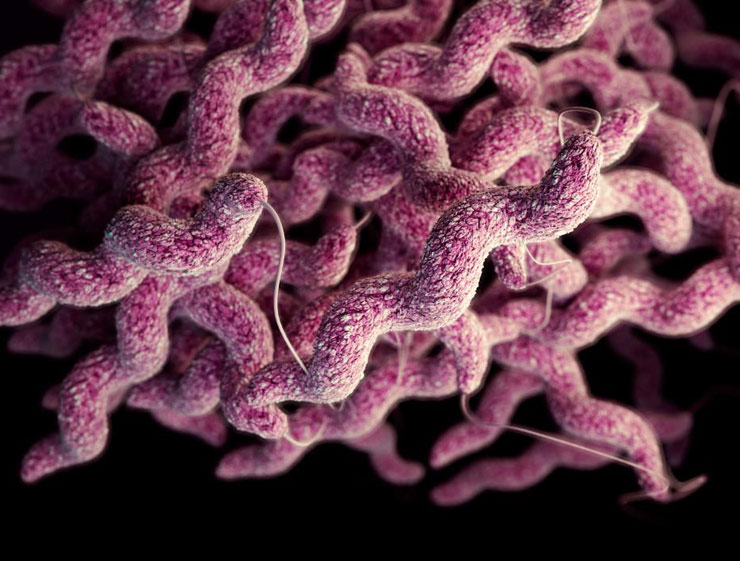
This bacterial infection may not cause any symptoms, but you are at an increased risk of getting nerve inflammation or arthritis after a campylobacter infection. Symptoms include diarrhea, abdominal pain and lethargy. Unpasteurized milk and undercooked meat or poultry are foods most commonly contaminated with campylobacter.
The incubation period is between one and 10 days, and symptoms like stomach cramps and fever may take up to 5 days to resolve completely.
3. E. coli
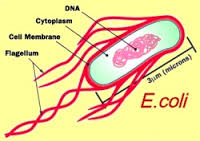
These bacteria naturally exist in your gut and are harmless. However, some strains of these bacteria may produce toxins that cause serious illness. The infection in children and elderly people may cause serious complications and may even lead to kidney failure. E. coli usually contaminate foods such as unpasteurized milk, lettuce, sprouts, and undercooked meat. They may also contaminate fruit juices.
In most cases, the incubation period is between 2 and 8 days, whereas the symptoms take 5-10 days to resolve completely.
4. Hepatitis A
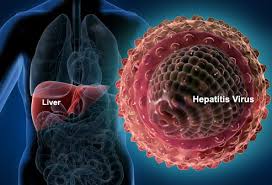
How to tell if you have food poisoning? Different kinds of virus may cause different symptoms. Hepatitis A virus can cause an inflammation of the liver and produce symptoms such as loss of appetite, fever, nausea, tiredness, stomach pains, jaundice, and dark urine. The virus can contaminate drinking water, undercooked food and oysters raised in contaminated waters.
The incubation period is between 15 and 50 days, while the symptoms last several weeks.
5. Listeria
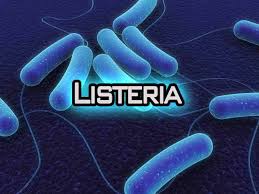
This bacterial infection can cause symptoms such as headaches, fever, aches, cramps, nausea, pains, and diarrhea. Sometimes you do not have any symptoms. The infection can cause life-threatening complications in newborns and elderly people. Pregnant women are at an increased risk of becoming infected, and if they do, it may lead to stillbirth. Pre-prepared salads, raw seafood, leftover meat, and unpasteurized milk are some food items more likely to be contaminated with listeria.
The incubation period is 3-70 days and you may eventually develop meningitis or blood poisoning.
6. Norovirus
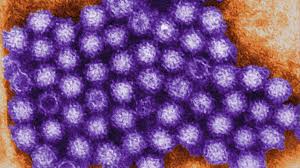
This highly contagious illness is more common in children and usually produces mild symptoms and it can cause dehydration. You may become infected after eating oysters and other shellfish.
The incubation period is 24-48 hours and symptoms may last up to a couple of days.
7. Rotavirus
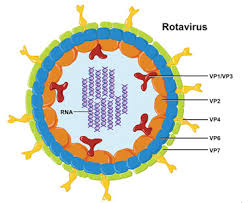
Children under 2 are more likely to develop food poisoning due to rotavirus. Symptoms include diarrhea, frequent episodes of vomiting and black colored stool. You can become infected when you have the food that has been handled by someone who is already infected with rotavirus.
The incubation period is 24-72 hours and symptoms may last up to 3-8 days.
8. Chemical Food Poisoning
You may develop chemical food poisoning when you eat an animal or plant that contains chemical toxins. The most common symptoms include nausea, diarrhea, and vomiting. Paralysis and seizures are rare but possible. Here are two examples of chemical food poisoning:
- Mushroom Poisoning: You can develop abdominal pain and vomiting after eating poisonous mushrooms. Symptoms may vary depending on the type of mushroom. Mushrooms that cause symptoms within 2 hours of ingestion are usually less dangerous.
- Shellfish Poisoning: Shellfish such as clams, mussels, scallops, and oysters can ingest poisonous dinoflagellates that can produce toxins. These toxins can attack the nerves and are poisonous for humans. You may experience a pins-and-needles sensation in your mouth within 5-30 minutes of eating the fish. Vomiting, nausea, and abdominal cramps are the other symptoms. Muscle weakness is common, and paralysis of the legs and arms can happen in certain cases.
How Is Food Poisoning Diagnosed by a Doctor?
Knowing how to tell if you have food poisoning is important, but you should not rely on guesswork. Go see your doctor for further evaluation if you suspect a food poisoning. Your doctor may do the following diagnosis.
- They consider your detailed history including how long you have been experiencing your symptoms to make a correct diagnosis. They will also ask about what you have eaten. What's more, they may also perform a physical exam before making a diagnosis.
- They may order diagnostic tests, such as a blood test, examination for parasites, or stool culture to make a correct diagnosis. A stool culture helps identify the infectious organisms, which in turn helps your doctor determine the best treatment option.
How to Treat Food Poisoning
Now you know how to tell if you have food poisoning. Here are some steps to take when suffering from food poisoning:
- Be sure to drink plenty of water to stay hydrated. You can also consider drinking sports drink packed with electrolytes. Coconut water and fruit juice also help restore carbs and reduces tiredness.
- Do not drink caffeinated drinks because they can irritate your digestive tract. You'd better opting for decaffeinated teas with herbs like peppermint, chamomile, and dandelion.
- Take over-the-counter drugs such as Pepto-Bismol and Imodium to suppress nausea and control diarrhea.
What's more, you should take good rest while recovering and see your doctor if your condition becomes worse. You may need intravenous fluids to stay hydrated in severe cases of food poisoning.
Here are some more specific treatments and home remedies for food poisoning.
